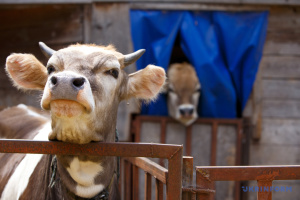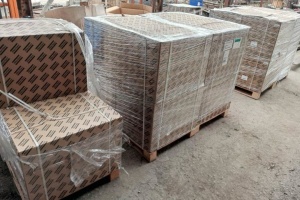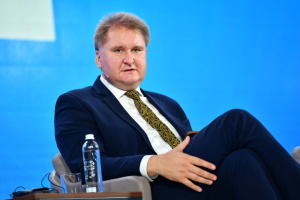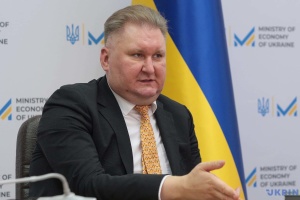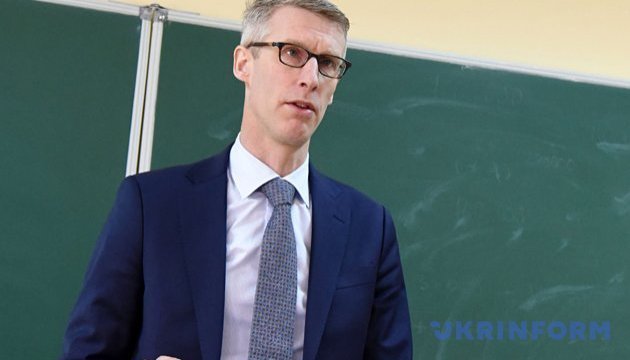
Where could Ukraine find additional billions of dollars annually?
The International Monetary Fund prefers not to assess macroeconomic risks for Ukraine if the IMF-supported program is put on hold, or avoids talking about it...
An Ukrinform reporter heard this message in a short conversation with IMF Resident Representative in Ukraine Goesta Ljungman. The opportunity to talk came after the lecture that he delivered to the students of the Kyiv-Mohyla Academy.
Obviously, such a scenario is not considered. At least for now... And this is really reassuring news.
One can find absolutely polar estimates of Ukraine's cooperation with the International Monetary Fund from experts and journalists in the Ukrainian information space. From accusations of the country's economic problems to the universal remedy for all the troubles. However, many of them are emotional, rather than solidly justified.
It is extremely difficult for photographers to catch emotions on Goesta Ljungman's face, but he can articulate clear messages using a language well understood, even by students. Especially since it was not an academic theorist who told them about the economic future of Ukraine, but a person who has practical experience in implementation of fiscal reforms from Kuwait to Georgia, and who sees the slow wheels of Ukrainian reforms and, most importantly, the mechanisms that should put these reforms in motion.
If there was a topic that went through the lecture all the way - it's the price paid by Ukraine for unfinished reforms. It is not always possible to calculate it down to one hryvnia, but the scale of lost opportunities is striking both for the students and the lecturer himself.
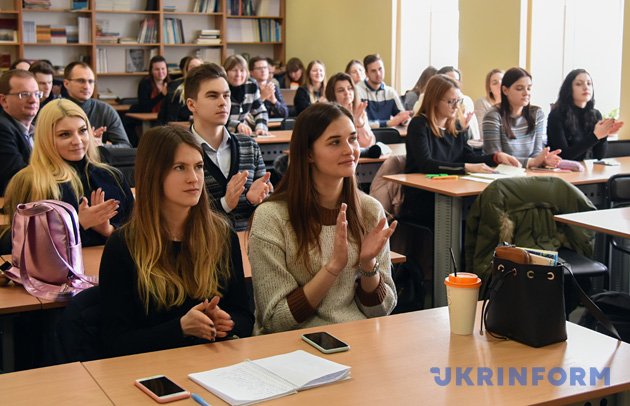
FLASHBACK TO 2014-2015: FREE FALLING ECONOMY
"The situation was really very complicated, the economy was in the state of free fall. However, the reason was not only the crisis that occurred then. It was the culmination and accumulation of a very long period of ineffective policy and total absence of reforms," said Goesta Ljungman, giving an assessment of the gloomy picture of 2014, when the Ukrainian economy was facing difficult times.
He recalled how rapidly GDP had been declining and that it had been preceded by an unsupported increase in the level of payments to the population, artificially and consciously overvalued exchange rate, which made Ukrainian exports uncompetitive in foreign markets, and imports into the country - on the contrary, too affordable.
"There was a lack of trust in the economy; in fact, there was no trust at all. To complete the picture, it's worth adding a high level of corruption, a banking crisis and unfavorable business conditions," Ljungman says.
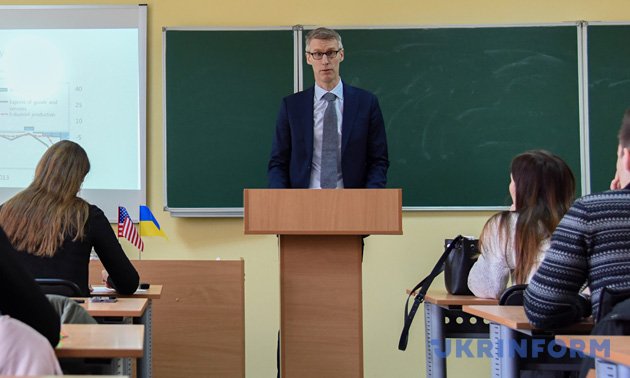
WILL THERE BE A LONG PAUSE IN FINANCIAL SUPPORT TO UKRAINE?
What was the basis for the IMF program for Ukraine to recover from the economic crisis? Goesta Ljungman explains in detail that there were several key elements, in particular, the projected financing of $17.5 billion, which is provided in separate tranches, to replenish foreign reserves and create financial strength, as well as macroeconomic stabilization ensuring sustainable economic development that is achieved through the implementation of sound financial and economic policies.
But in the situation when more than half of the economy is actually a continuation of the state itself, there was a need for a detailed program of structural reforms. Not minor ones but deep, those, which would eliminate the sources of destabilization and create grounds for the growth of the private sector in the first place.
So the task of this program was exactly to stabilize the economy and launch the process of radical reforms, which should have become the basis for stable development for many years. And despite all the problems with achieving such an ambitious goal, according to Goesta Ljungman, the IMF does not yet consider the scenario of suspending support to Ukraine, and the IMF Representative prefers not to talk about macroeconomic risks under the scenario when the Ukrainian economy is cut loose and charts its own course.

UKRAINE LOSING BILLIONS OF HRYVNIAS EVERY YEAR BECAUSE OF CORRUPTION
Students challenged the financier with sharp questions. However, these questions were rather pleasant stimuli, as the speaker got visibly excited and mobilized - although the habit of weighing every publicly articulated word had its effect.
The young people were interested in how to make public administration transparent and more effective, which path to take to be among the world leaders tomorrow. Or, maybe, it is necessary to take some radical steps or use unique formulae and recipes?
But it turned out that the future economists were the most concerned by the fact that unbeatable corruption becomes an obstacle for strategic investors when they decide to enter Ukraine. Why?
Because, as Mr. Ljungman explained, they are plainly afraid of risking their assets and building long-term strategies in the situation when even basic rules of law continue to be ignored. "The level of corruption in Ukraine is higher than in other states of Eastern and Central Europe. Yet another worrying trend is that in other countries this indicator is steadily declining, and in Ukraine it is growing," the head of the IMF Resident Representative Office says.
It turns out that the IMF has calculated how much corruption costs to our economy and society. "If Ukraine could bring the level of corruption to the average level of EU countries, its GDP would grow faster by 2%. Every year," the speaker reinforces his argument.
The indicator is more than conspicuous, because it would be the case of, depending on the pace of development and the nominal GDP, billions of hryvnias – that are now under-received by pensioners, schools, hospitals, and not spent to repair hundreds of kilometers of roads with potholes that are doomed to cause accidents.
Goesta Ljungman mentioned the achievements in creating anti-corruption institutions. "However, their effectiveness is very low, since the most resonant cases investigated by the NABU are stuck in courts and end there, and senior officials always have the opportunity to avoid unbiased justice," says the financier.

LAND MARKET WILL ADD 2-5% of GDP
"There is a lot of talk about the need for land reform, which is among the key requirements under the program of cooperation with the IMF. How critical is the fulfillment of this requirement?" someone in the audience asked the financier.
The point is, says Ljungman, that Ukrainian chernozemic soils known worldwide are used only by 30% compared to the indicators of the European countries. "The problem is that there is a lack of investment in agriculture, no irrigation systems are being built, a park of agricultural machinery is not being modernized, and the development of the whole sector is hampered," the head of the IMF Resident Representative Office emphasized. According to various expert estimates, the creation of the land market will trigger mechanisms that will ensure continued additional GDP growth by another 2-5 percentage points per year.

WHEN MR. LJUNGMAN SMILES
"I would not call what I've seen and heard today optimistic, rather it was very realistic. But there was an impression that we were frankly spoken to without standard phrases and this is the main thing," Daria Liubchenko, the second-year student of the Faculty of Economics, said, sharing her impressions.
The lecture is over, but Mr. Ljungman is not leaving the audience for a long time, he is not in a hurry, joins another discussion, and takes pleasure in being photographed with students.
And in a personal conversation, the guest wishes the new generation of future reformers not to miss the promising future that their country may have. "Ukraine has enormous potential and for this purpose it is necessary to continue those reforms, which, in fact, have just begun to be implemented. I would like to wish you to be active in the private sector, not to be afraid to start new companies. But I would also like to see young people with fresh thinking and progressive ideas in the public sector," the speaker says and, maybe for the first time during the lecture, smiles with relief.
Nataliya Bukvych, Kyiv

